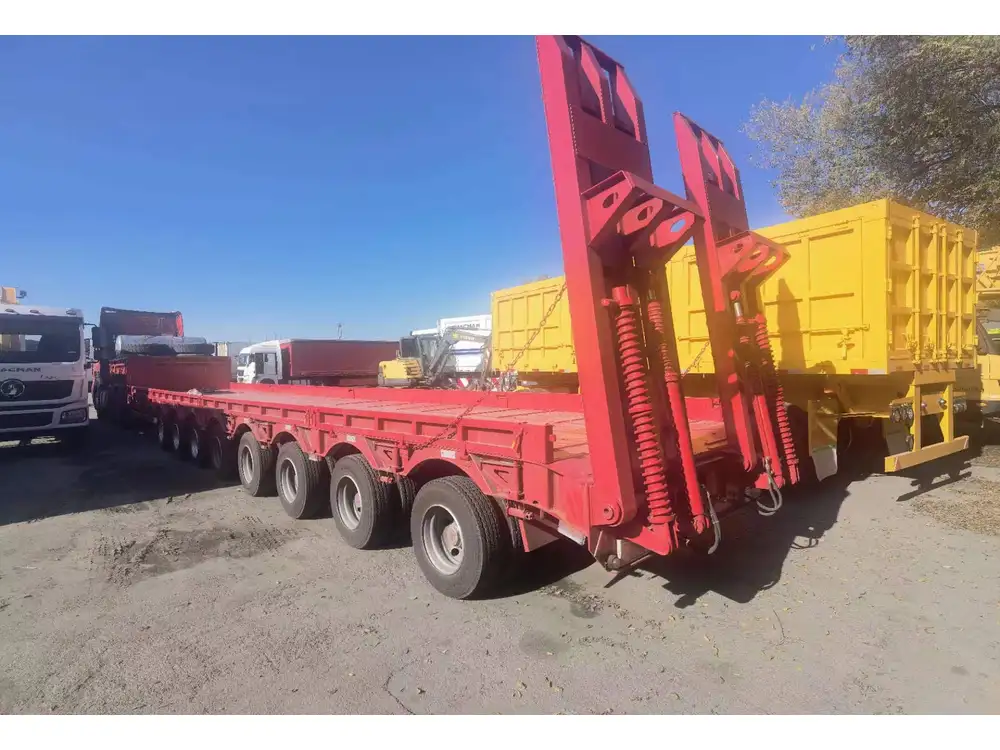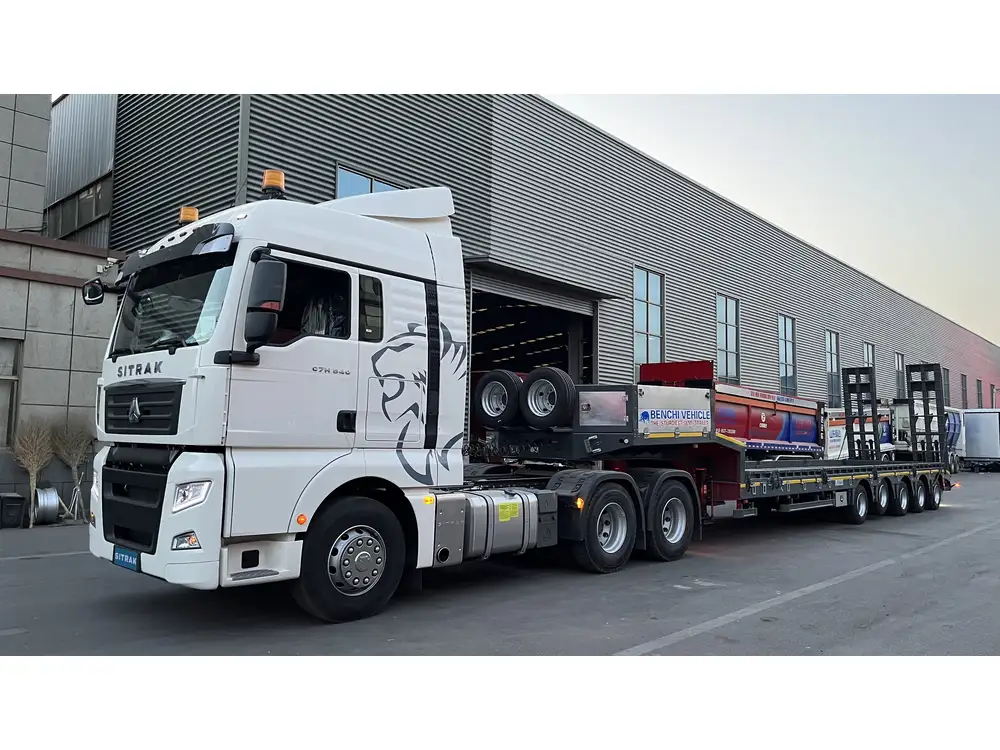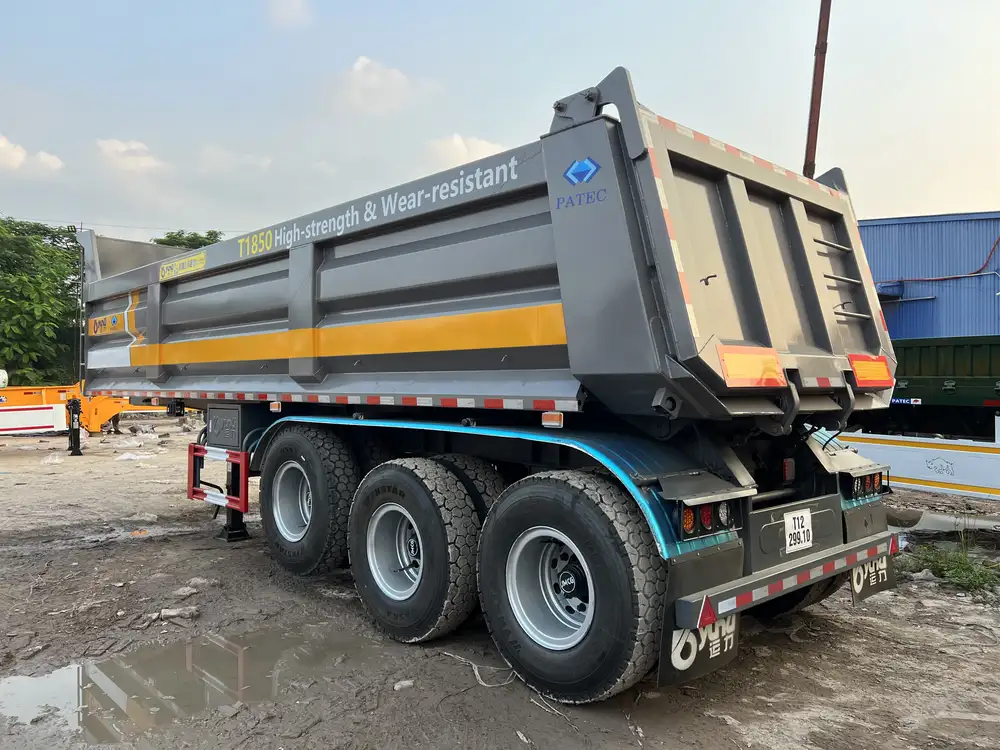Hydraulic systems play a pivotal role in the operation of dump trailers, enabling smooth and efficient lifting and lowering mechanisms. Selecting the right hydraulic fluid is crucial for ensuring optimal performance, longevity, and safety. In this article, we will explore the various types of hydraulic fluids suitable for dump trailers, addressing key considerations and factors to help you make an informed decision.
Understanding Hydraulic Fluid: The Lifeblood of Your Dump Trailer
Hydraulic fluid acts as a medium through which force is transferred in hydraulic systems. It is specifically engineered to meet the physical and chemical demands required by hydraulic systems, such as maintaining viscosity, providing lubrication, and preventing corrosion.
Key Functions of Hydraulic Fluid
- Force Transmission: Hydraulic fluid transmits power within the system, allowing components to move and function.
- Lubrication: It reduces friction between moving parts, preventing wear and tear.
- Temperature Regulation: Maintaining a stable temperature is crucial; hydraulic fluid helps dissipate heat generated during operation.
- Contamination Prevention: Quality fluids protect against contaminants that can harm the system.

Types of Hydraulic Fluids Suitable for Dump Trailers
1. Mineral Oil-Based Fluids
Mineral oil is the most commonly used hydraulic fluid. Derived from refining crude oil, it typically contains additives that improve performance.
Advantages:
- Cost-Effective: Generally less expensive than synthetic options.
- Widely Available: Easier to source from bulk suppliers.
Disadvantages:
- Limited Temperature Range: May degrade in high temperatures.
- Environmental Concerns: Possible environmental impact from spills or leaks.
Recommended Specifications:
- ISO 32 to ISO 68: These viscosity grades are ideal for various climates and operational conditions.

2. Water-Based Fluids
Water-based fluids, including water-glycol solutions, are an environmentally friendly option that provides good fire resistance.
Advantages:
- Reduced Fire Risk: Lower flammability compared to mineral oils.
- Eco-Friendly: Less harmful to the environment.
Disadvantages:
- Lubrication Issues: Potential for corrosion due to water content.
- Limited Temperature Range: Generally less effective in extreme cold or heat.
Recommended Specifications:
- HFC or HFB Fluids: These are specific for hydraulic applications requiring water-based fluids.
3. Synthetic Fluids
Synthetic hydraulic fluids are engineered to outperform conventional fluids in several areas, making them a premium choice for demanding applications.
Advantages:
- High Thermal Stability: Excellent performance in extreme temperatures.
- Enhanced Lubrication: Exceptional protection against wear.
- Longer Lifespan: Reduced frequency of fluid changes.
Disadvantages:
- Higher Cost: Significantly more expensive than mineral-based fluids.
- Compatibility Issues: May not be compatible with all systems.

Recommended Specifications:
- ISO 32, 46, or 68 Synthetic Fluids: These grades offer versatility in harsh environments.
Factors to Consider When Choosing Hydraulic Fluid
Operating Temperature: Consider the typical temperatures your dump trailer will operate in. Select a fluid that maintains stable performance at both low and high temperatures.
Load Conditions: The weight and type of loads your trailer carries can affect hydraulic fluid choice. Heavier loads may require a fluid with superior lubrication properties.
System Compatibility: Ensure that the fluid you select is compatible with the seals and materials used in your hydraulic system to avoid degradation and leaks.
Environmental Impact: For environmentally-conscious operations, prioritize fluids that reduce pollution risk and offer easier disposal or recycling options.
Manufacturer Recommendations: Always consult the dump trailer manufacturer or the hydraulic system documentation. Adhering to recommended specifications is crucial for warranty and performance.
Troubleshooting Common Hydraulic Fluid Issues
The performance of your dump trailer’s hydraulic system can be significantly impacted by improper hydraulic fluid selection or maintenance. Here are common issues and how to address them:
| Issue | Possible Cause | Solution |
|---|---|---|
| Overheating | Inadequate fluid due to leaks or contamination | Check for leaks; replace fluid and filter |
| Slow Response | Viscosity too high or fluid degradation | Change to a lower viscosity fluid; replace old fluid |
| Increased Noise | Air in the system or low fluid level | Bleed the system; top off the fluid level |
| Corrosion | Incompatible fluid or contamination | Switch to compatible fluid; clean the system |

Steps for Maintaining Your Dump Trailer’s Hydraulic System
Regular maintenance of your dump trailer’s hydraulic system is essential for longevity and efficiency. Follow these steps to ensure optimal performance:
1. Regular Fluid Checks
- Frequency: Check hydraulic fluid levels and quality at least once a month, or more frequently during heavy usage.
- What to Look For: Observe color, clarity, and presence of contaminants. Cloudy fluid or sediment is a sign of degradation.
2. Fluid Changes
- Schedule: Change hydraulic fluid every 6 to 12 months, depending on usage and fluid condition.
- Flush System: When changing fluid, flush the entire system to remove any residual old fluid and contaminants.

3. Inspect Seals and Fittings
- Regular Inspections: Check hydraulic hoses, seals, and fittings for wear, leaks, or damage.
- Prompt Repairs: Replace any damaged components immediately to prevent system failure.
4. Clean Filtration System
- Filter Maintenance: Clean or replace hydraulic filters at least once a year to prevent contaminants from entering the system.
5. Monitor Performance
- Performance Indicators: Keep an eye on lift speed, noise levels, and operational responsiveness. Any deviations may be a sign of trouble.

Conclusion: Ensuring Optimal Performance of Your Dump Trailer
Choosing the right hydraulic fluid for your dump trailer is fundamental to its operation, longevity, and safety. By understanding the types of fluids available, the factors influencing your choice, and how to maintain your hydraulic system effectively, you can ensure that your trailer performs at its best. Remember, regular maintenance and adherence to manufacturer guidelines will extend the life of your hydraulic system, providing reliable service for your hauling needs.
Consider these insights as a roadmap to navigate the complexities of hydraulic fluids in dump trailers. With the right knowledge, you will not only improve your trailer’s performance but also enhance your overall operational efficiency.



